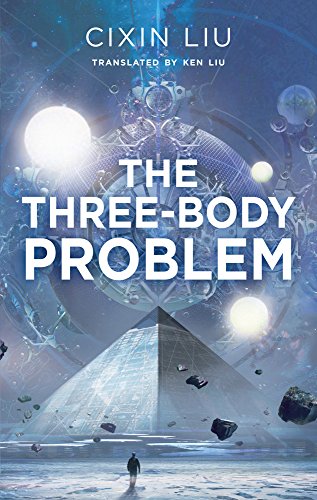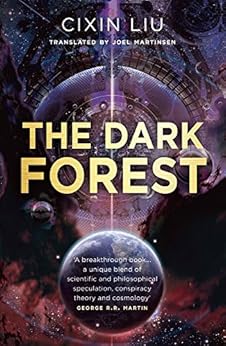 |
| Amazon link |
I wrote about it here.
The second volume, "The Dark Forest", posed the problem: how can you defend yourself against an incoming alien invasion force of overwhelming technical superiority with perfect intelligence of your every move, but one which will not arrive for hundreds of years. Here is my fan-review.
 |
| Amazon link |
Amazingly, Liu Cixin finds a way, but one which is dangerously unstable.
Now the final volume has been released, "Death's End". To those who were wondering how Liu Cixin would surpass volume two, I'm pleased to confirm that he has shifted up to the whole universe, if not the metaverse. Yes, big ideas in science-fiction are back!
 |
| Amazon Link |
The author's characters exemplify moral choices, as in a mediaeval Morality play.
As a purist, I'm a little irritated by the scientific faux pas, including the classic seeing incoming entities travelling at the speed of light before they arrive, and the idea that a spherical space station with spin-induced internal 'gravity' has a 'gravity' vector everywhere normal to its surface ('the skyscrapers near the spin axis experienced reduced gravity as their spires rose like needles towards the light at the centre of the sphere').
Perhaps we can blame the translator?
'Death's End' (in line with current Chinese views) satirises Western Europe's 'decadent, feminised welfare state model' as incapable of taking tough decisions. This, along with his explicit gender roles, has earned him the wrath of at least one American academic who wants literature to function as agitprop.
If you like intelligent, classic pulp-SF with a Chinese cultural spin you need to get this trilogy.
I agree that there would be a cos theta term in the gravitational vector, and that it might be more sensible to build the skyscrapers pointing orthogonally towards the axis rather than towards the centre. However if they did point towards the centre, then there could be a compensating floor angle (slanted floors) that keep the occupants (if human) upright. Do we know the detailed design of these skyscrapers?
ReplyDeleteThe science errors are a bit of a sideshow but contextually it is not as you suggest. The torque would be immense. There are other elementary mistakes which bring the reader up short, which I didn't mention. Irritating!
Delete